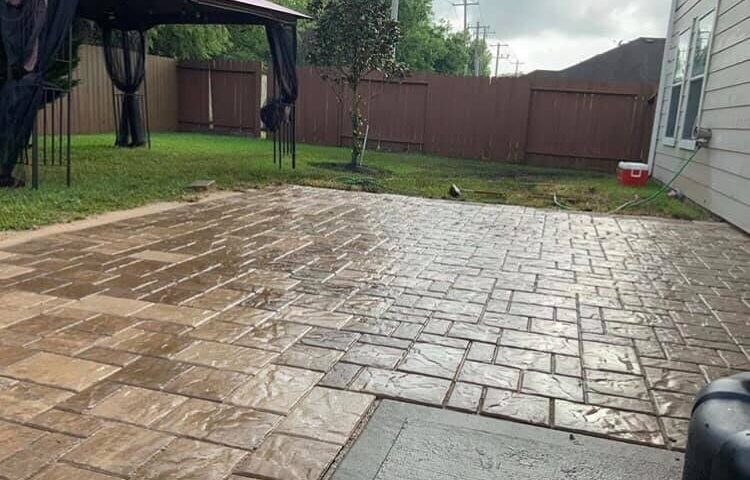Buying a home in Dallas is an exciting process, but it can also be stressful if you don’t know what to look out for. A home inspection is crucial for identifying any issues or defects with the property before you finalize the purchase. While home inspectors check all aspects of the house, there are certain areas you’ll want to pay extra attention to. Here are some key things to keep an eye on during a home inspection in Dallas.
The Roof
The roof is one of the most important components of any home. It protects the entire structure from outside elements like rain, wind, and UV rays. Carefully inspect the roof during your home inspection. Look for missing, cracked, loose, or curling shingles. Check the flashing around chimneys, vents, and skylights for signs of deterioration. Improper roof drainage can lead to water infiltration, so check the gutters and downspouts as well. If the roof is near the end of its lifespan, you may need to budget for a replacement soon.
The Attic
After checking the roof, head into the attic to get a look at the underside of the roof deck. Check for water stains or signs of leaking. Look for evidence of pests like mice or insects. Make sure the insulation is adequate – at least R30 is recommended for Dallas area homes. Ensure the attic has proper ventilation to prevent moisture buildup. Finally, check for any electrical issues in the attic like exposed wiring, loose connections, or overloaded circuits.
Foundation
The foundation supports the entire home, so its integrity is paramount. Look for large cracks in the foundation walls or concrete slab – anything wider than 1/4 inch could indicate foundational movement. Check for signs of water intrusion like efflorescence, mold, or mildew. Uneven floors, cracks in walls and sticking doors can also indicate foundation settling. If there are any red flags, consider getting a professional inspection by a foundation repair company.
Crawl Space
For homes with crawl spaces, inspect the space thoroughly. Make sure there is a proper vapor barrier over any exposed dirt. Check for adequate ventilation and drainage. Look for signs of moisture damage, rot, mold, or pest infestation. Plumbing leaks in the crawl space can lead to high humidity so inspect pipes carefully for any signs of leakage. Make sure any insulation in the floor above the crawl space is correctly installed and in good condition.
Electrical System
Faulty electrical systems are a major fire hazard, so the electrical should be thoroughly inspected. Check that the main service panel has enough capacity for the home’s needs with room for future expansion. Make sure the wiring is in good condition with no fraying or exposed wires. Look for loose connections, improperly grounded outlets, and other safety issues. Check for covered junction boxes and improper modifications to wiring. Any issues noted should be addressed by a licensed electrician.
Plumbing
Turn on all faucets, flush toilets, run showers, and check underneath all sinks to look for any leaks in the plumbing system. Check water pressure and drainage – low pressure or slow drainage could indicate piping blockages. Make sure water heaters are properly installed and vented – inspect the TPR valve and pipes. Look at all drain lines and supply lines for evidence of leakage. Carefully inspect well and septic systems, if present. Finally, check for signs of mold, mildew, or rotting under sinks that could indicate past leaks.
HVAC System
Heating and cooling systems are expensive to repair or replace, so pay close attention to the HVAC during inspection. Turn on the heating and AC to make sure both are functional. Inspect the overall condition of units inside and out – look for any corrosion or damage. Check that HVAC systems are properly vented and condensation drains correctly. Replace filters if dirty and ensure ductwork is well attached. Finally, ask about past maintenance and repairs for any HVAC equipment.
Water Damage
Water damage is one of the costliest repair issues in homes. Carefully check walls, ceilings, attics, and crawl spaces for any signs of water damage like discoloration, bubbling paint, or sagging areas. Moisture meters can detect hidden water issues in walls before symptoms appear. Pay special attention to windows, doors, chimneys, and plumbing fixtures for any red flags. Catching water damage early is key to preventing mold growth.
Pests
Texas homes often have issues with termites, cockroaches, ants, and other pests that enjoy the warm climate. Inspect the foundation, attic, crawl spaces, basements, and everywhere else closely for any signs of infestation. Look for dirt tunnels left by termites, splintering or hollowed wood, strange odors, and insect spotting. Knowing the extent of any pest problems will help estimate treatment costs. Pest control treatment may be required before closing.
Landscaping
While not part of the house itself, landscaping issues can be costly to fix. Check for any diseased trees that may need removal in the future – getting estimates for this work is wise. Inspect fences, retaining walls, patios, and other structures for damage that will need repair. Look at the grading near the home to ensure proper drainage away from the foundation. Check irrigation systems to ensure proper coverage. Identify any tripping hazards in walkways. Understanding landscaping needs will help budget for future repairs.
Garage Door Openers
Inspect garage door openers by running them through a few open and close cycles. Check that auto-reverse and other safety features are working properly. Lubricate rollers and hinges that appear dry or squeaky. Look for signs of damage to tracks or cables. Push on the door manually to ensure the motor is disengaging when required. Code issues like exposed wires should be noted. Proper garage door operation is key for safety and convenience.
Appliances
Turn on all appliances like the oven, stove, dishwasher, microwave, and more during the inspection. Check for any leakage, unusual noises, or other red flags when running appliances. Examine venting hoods for proper function. Look at appliance exteriors for damage. Request any manuals for appliances left by owners. Finally, test garbage disposals, refrigerators, washers, and dryers to ensure all are working properly with no issues.
Fireplace and Chimney
If the home has a fireplace, inspect it thoroughly before first use. Check the exterior masonry for any cracks that require repointing. Examine the damper and flue for proper function and signs of creosote buildup. Ensure proper clearance from combustible materials. Look for evidence of past water intrusion. Finally, ensure fireplaces have proper ventilation to avoid smoke and carbon monoxide issues.
Safety Concerns
There are a few key safety concerns to watch for during an inspection. Check for smoke detectors, carbon monoxide detectors, and fire extinguishers on each floor. Make sure handrails are properly fastened on staircases. Inspect for tripping hazards like uneven flooring. Check for safety glass or other protective barriers in shower/tub areas. Finally, examine window screens and locks to ensure proper function and child safety. Adding or upgrading safety features may be required.
Signs of Flipping
Many homes in the hot Dallas real estate market have been quickly refurbished or “flipped” by investors. Look closely for telltale signs like fresh paint or flooring hiding larger issues. Things like mismatched floor trim, outlet covers removed to paint around them, and spray-on texturing on ceilings may indicate cosmetic-only flips. Examine any renovations carefully for subpar work or code violations. Be suspicious of any home with recent updates but no receipts for work performed.
Permits for Work Done
When additions, renovations, or repairs have been made to the home, check that proper permits were obtained from the city. Work done without permits can impact home insurance coverage or result in fines. Ask to see permits and contractor invoices for any major electrical, plumbing, or structural work done in the past. Unpermitted work may need to be removed or done properly and permitted before closing. An open permit history can also help identify undisclosed issues.
Your Dallas home inspector will thoroughly examine all these areas and more during the inspection process. Paying attention to the inspection report and asking questions is key. It may be wise to get second opinions on any major issues found. With diligence during the inspection, you can feel confident proceeding with your home purchase knowing what needs to be addressed. Buying a home is a big investment – take time to inspect it carefully first.





